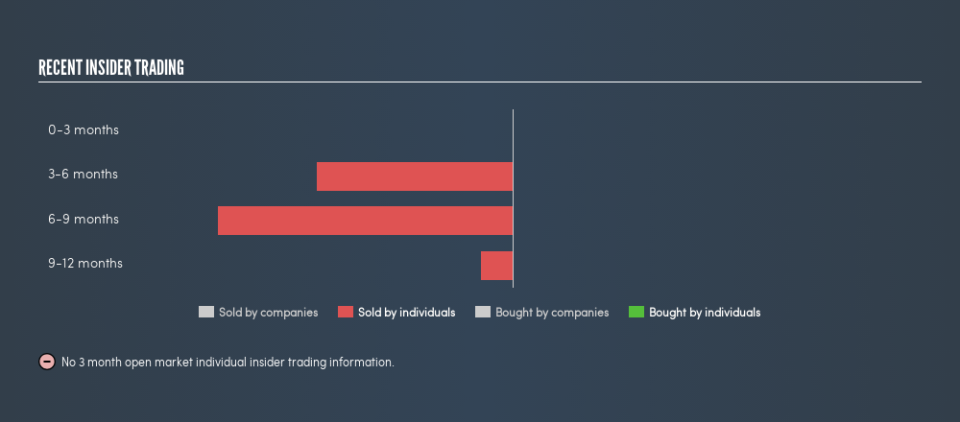Did VMware, Inc. (NYSE:VMW) Insiders Sell Shares?

We've lost count of how many times insiders have accumulated shares in a company that goes on to improve markedly. The flip side of that is that there are more than a few examples of insiders dumping stock prior to a period of weak performance. So shareholders might well want to know whether insiders have been buying or selling shares in VMware, Inc. (NYSE:VMW).
What Is Insider Selling?
It is perfectly legal for company insiders, including board members, to buy and sell stock in a company. However, rules govern insider transactions, and certain disclosures are required.
We would never suggest that investors should base their decisions solely on what the directors of a company have been doing. But it is perfectly logical to keep tabs on what insiders are doing. For example, a Harvard University study found that 'insider purchases earn abnormal returns of more than 6% per year.'
View our latest analysis for VMware
VMware Insider Transactions Over The Last Year
Over the last year, we can see that the biggest insider sale was by the Independent Director, Michael Brown, for US$5.6m worth of shares, at about US$160 per share. So we know that an insider sold shares at around the present share price of US$148. While we don't usually like to see insider selling, it's more concerning if the sales take place at a lower price. Given that the sale took place at around current prices, it makes us a little cautious but is hardly a major concern.
We note that in the last year insiders divested 167k shares for a total of US$27m. VMware insiders didn't buy any shares over the last year. You can see a visual depiction of insider transactions (by individuals) over the last 12 months, below. By clicking on the graph below, you can see the precise details of each insider transaction!
If you like to buy stocks that insiders are buying, rather than selling, then you might just love this free list of companies. (Hint: insiders have been buying them).
Insider Ownership
Looking at the total insider shareholdings in a company can help to inform your view of whether they are well aligned with common shareholders. We usually like to see fairly high levels of insider ownership. VMware insiders own 0.3% of the company, currently worth about US$186m based on the recent share price. I like to see this level of insider ownership, because it increases the chances that management are thinking about the best interests of shareholders.
So What Does This Data Suggest About VMware Insiders?
There haven't been any insider transactions in the last three months -- that doesn't mean much. It's heartening that insiders own plenty of stock, but we'd like to see more insider buying, since the last year of VMware insider transactions don't fill us with confidence. Of course, the future is what matters most. So if you are interested in VMware, you should check out this free report on analyst forecasts for the company.
Of course VMware may not be the best stock to buy. So you may wish to see this free collection of high quality companies.
For the purposes of this article, insiders are those individuals who report their transactions to the relevant regulatory body. We currently account for open market transactions and private dispositions, but not derivative transactions.
We aim to bring you long-term focused research analysis driven by fundamental data. Note that our analysis may not factor in the latest price-sensitive company announcements or qualitative material.
If you spot an error that warrants correction, please contact the editor at editorial-team@simplywallst.com. This article by Simply Wall St is general in nature. It does not constitute a recommendation to buy or sell any stock, and does not take account of your objectives, or your financial situation. Simply Wall St has no position in the stocks mentioned. Thank you for reading.

 Yahoo Finance
Yahoo Finance 
